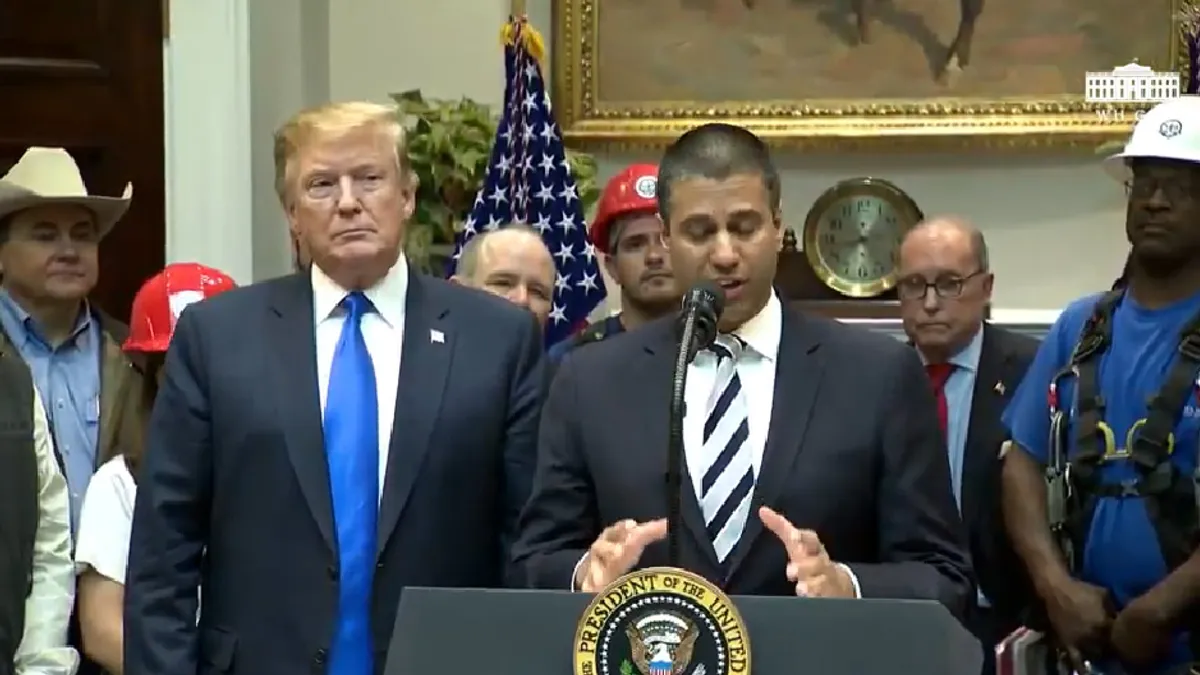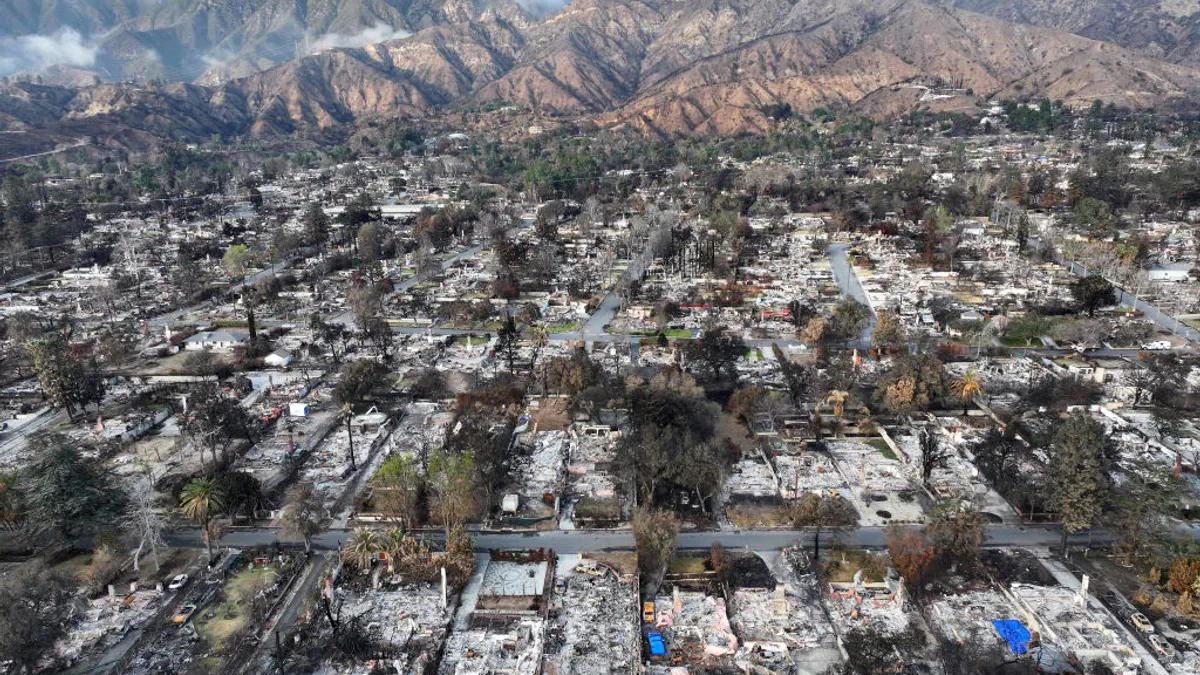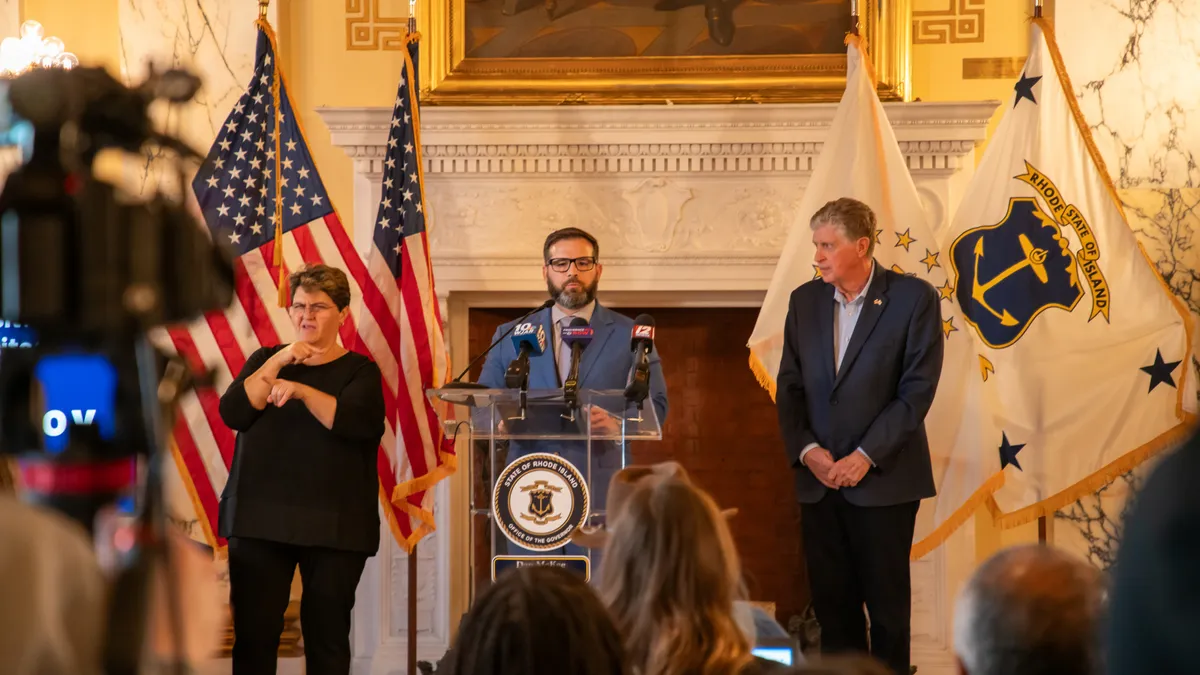President Donald Trump and Federal Communications Commission (FCC) Chair Ajit Pai announced Friday a plan to boost 5G by auctioning more spectrum and creating a fund to encourage telecom companies to expand into rural areas.
Pai said the FCC will create a $20.4 billion Rural Digital Opportunity Fund to encourage telecom companies to build out 5G infrastructure in underserved — particularly rural — areas. On Dec. 10, the FCC will auction three sections of millimeter-wave airwaves in what Pai said will be the "largest spectrum auction in American history." Trump said equity of access is key in the two announcements.
"As we are making great progress with 5G, we are also focused on rural communities that do not have access to broadband at all," he said in a speech at a White House event.
5G has been hailed by some experts as a potential game-changer in closing the urban/rural digital divide. Both Trump and Pai said 5G could lead to improvements in areas including health care, transportation and jobs, which could all receive a boost from the high-speed connectivity offered. But so far, telecom companies have focused their 5G build-out largely on major urban areas, in part because it is expensive to add the needed infrastructure in rural areas and does not provide a high return on investment.
According to an FCC fact sheet, the fund will support service providers that deploy the infrastructure and could connect up to four million homes and small business in rural areas, something Pai said will supercharge local economies.
"These next-generation networks will bring greater economic opportunity to America’s heartland, including some of the great jobs building infrastructure and it will help support future 5G technologies," Pai said.
In a statement, Rep. Greg Walden, R-OR, the Ranking Member of the House Energy and Commerce Committee, said the fund is "an unprecedented assurance to every community that you will be part of this next wave of wireless connectivity."
It remains to be seen if this injection of funds will be enough to convince telecom companies to invest in the needed infrastructure to provide 5G in rural areas. Mark McCaffrey, US technology, media and telecommunications leader at PricewaterhouseCoopers (PwC), told Smart Cities Dive companies still need to determine if they will take on more debt to build out infrastructure or pay for it directly. He said they also need to work out costs for customers, as if they are willing to pay more for the promised lightning-fast speeds, that could change the business model again.
"I don't think we're fully there and understanding, does the consumer end of this match up with whatever cost whether it's through debt or through cash flow,” McCaffrey said. “And I think that that is probably one of the bigger hurdles. You know the technology's all there, but how do you get the model to work where these companies can make it grow over a period of time.”
Some are unconvinced by the latest auction of millimeter wave spectrum. FCC Commissioner Jessica Rosenworcel, a frequent critic of the commission’s decisions, said during its monthly meeting that more must be done in mid-band spectrum, as other countries are far ahead.
In a tweet, Rosenworcel also said she was troubled by some of the administration’s decisions on 5G, including Trump’s move to place tariffs on 5G equipment. “So far this Administration’s interventions on 5G have done more harm than good,” Rosenworcel wrote. “From imposing tariffs on 5G equipment to alienating allies on 5G security to falling behind the rest of the world on critical mid-band spectrum, it has yet to offer a workable plan for US leadership.”
The United States had found itself trailing other countries including China and South Korea in 5G deployment and infrastructure spending, but appears to be catching up, according to testimony before the U.S. Senate Commerce Committee earlier this year and a report from Analysys Mason released by CTIA, which said the U.S. now is tied with China. Trump said the private sector will continue to lead without government interference, and that the U.S. must be first to the technology to ensure its competitiveness in the world market.
“We cannot allow any other country to out-compete the United States in this powerful industry of the future,” Trump said. “We are leading by so much in so many industries of that type, and we cannot allow that to happen.”




















